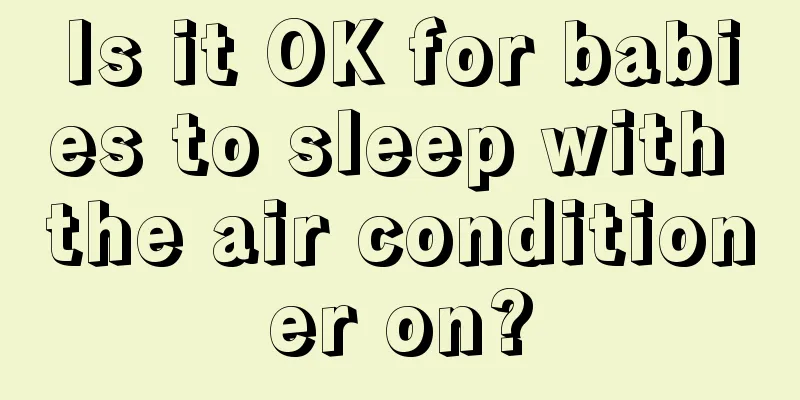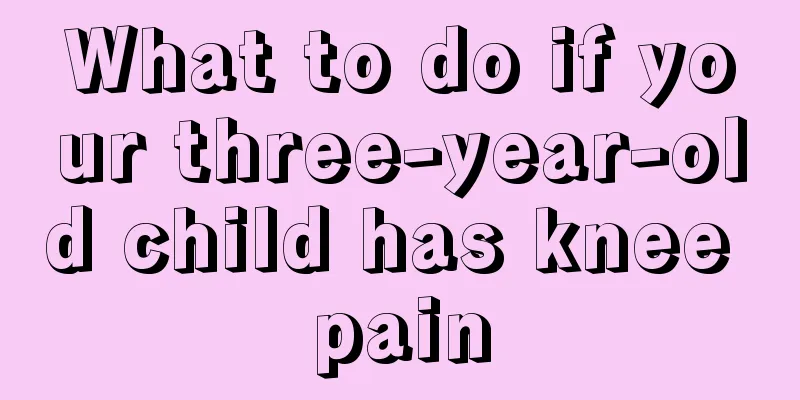What medicine should children take for severe indigestion?

|
When babies don’t like to eat, parents will force them to eat. In fact, they are just worried that the baby will be hungry, which leads to a lot of things in the stomach that cannot be digested and accumulate in the stomach for a long time. In this way, the whole person will feel different degrees of abdominal distension. This can be treated with some drugs. So what medicine should children take for severe indigestion? Food accumulation refers to a gastrointestinal disease caused by excessive consumption of milk and food in children, which damages the spleen and stomach and causes the milk and food to stagnate in the middle burner. The syndrome of indigestion often occurs in infants and young children, and its main manifestations include abdominal distension, dry or sour stool, foul-smelling flatulence, sour and rancid belching, and abdominal distension and heat. If a child has a fever due to indigestion, it is necessary to clear away the heat and use antipyretics to reduce the fever.1. When the body temperature is above 38.5 degrees, you can use antipyretic treatments such as Motrin and Tylenol. When the body temperature is below 38.5 degrees, you can take warm baths frequently to cool down, or apply a fever-reducing patch to the forehead to cool down. 2. You can use lactase, lactase, pepsin oral solution, etc. to promote digestion. It can also be treated with oral liquid for eliminating accumulation, or by taking decoction of hawthorn, malt, chicken's gizzard lining, etc. to eliminate accumulation and aid food. You can use pediatric enema to relieve constipation, which is the fastest way to relieve constipation in children. 3. Use medication rationally. When food accumulation causes fever, the key is to eliminate the accumulation. You can give your baby some Chinese patent medicines such as Xiaoer Qixing Tea, Huaji Oral Liquid, Wang's Baochi Pills, etc. to help with bowel movements. If the bowel movements are smooth, the fever will subside. Otherwise, if it only reduces the fever, the temperature will rise again after a few hours. While eliminating the accumulation, pay close attention to the baby's symptoms and body temperature. If the temperature is below 38.5 degrees Celsius and there is no obvious abnormality, there is no need to take antipyretics. Just drink plenty of water and cool down physically. If the body temperature is above 38.5, you can use children's special medicines such as Chaigui Antipyretic Granules, Antipyretic Patch, Tylenol, etc. If the temperature is above 39 degrees, you can use Motrin to reduce the fever urgently, but do not take too much. Care methods for children with indigestion and fever: 1. Physical cooling. If a fever is caused by indigestion, taking antipyretics immediately will reduce the body's ability to resist germs. If the body temperature does not exceed 38.5, physical cooling methods can be used. You can use warm water to wipe your baby's forehead, palms, soles of feet, back and chest to help cool down. A warm bath is also good. You can also dress your baby in loose, cool clothes to help dissipate heat. Drink more water to replenish the water lost due to fever, promote metabolism, and take away some internal heat.2. Eat some liquid food. When your baby is suffering from indigestion, do not force him to eat. Instead, feed him some liquid food such as soup, porridge, milk, and some light vegetables. You can eat bananas and apples as fruits to promote bowel movements. 3. Help with massage. If a baby has difficulty defecating, it will cause abdominal distension and pain. Parents can massage the baby's abdomen in a clockwise direction with the palm of their palm, with the navel as the center. When they feel a harder area (which may be stagnant stool), they should push down with a little force to promote the urge to defecate. You can also dip your fingers in baby oil and gently massage the baby's anus to stimulate bowel movements.4. Do appropriate exercise. Let your baby move more appropriately, rely on his own gastrointestinal activity to digest food and help eliminate accumulation. Exercise can also increase the secretion of sweat glands, which can take away some internal heat through sweating and help cool down. |
<<: What is the reason for the peeling of the feet of a two-year-old baby?
>>: What medicine should babies take for constipation?
Recommend
Causes and countermeasures of newborn spitting
The health of newborn babies is believed to be an...
What to do if your baby is stung by a bee?
The baby's skin is very tender, so we need to...
Is it good to clean children's teeth?
Dental health seems to have little impact on the ...
Dietary Guidelines for Children
The dietary structure of children is very critica...
How to check what the child lacks
The human body contains a certain amount of nutri...
What can parents do to help their children with autism recover?
In recent years, the incidence of autism among ch...
What should I do if my younger brother doesn't listen?
Raising children is an activity in life that requ...
What will happen if the fetus is asphyxiated?
What some expectant mothers fear most during preg...
How to treat a child's trachea
It is common for children to have poor trachea in...
Treatment of suppurative tonsillitis in children
The physical health of children is an issue that ...
Treatment for baby shaking head before sleeping
Nowadays, it is not uncommon to see babies shakin...
What to do if you are allergic to egg yolk
Eggs can be said to be a treasure trove of protei...
What to do if students' memory declines
We know that students need to use their brains fo...
What causes green stools in newborns?
Newborns cannot express their physical pain and c...
What are the reactions after taking sugar pills?
Children need to get vaccinations and take sugar ...









